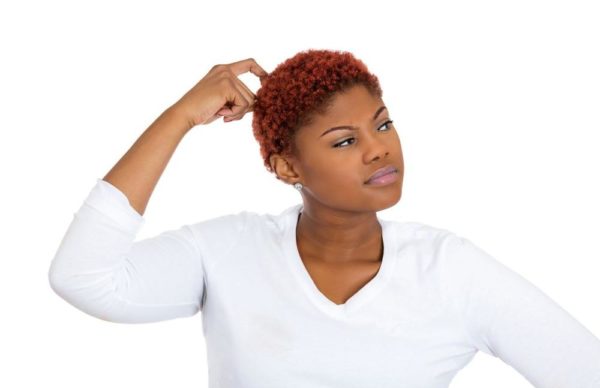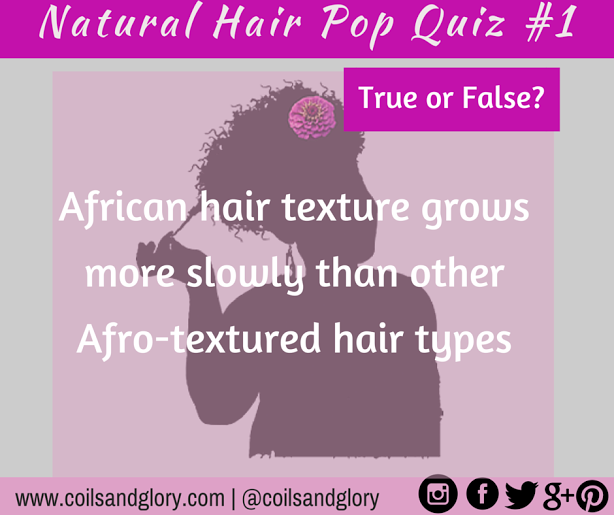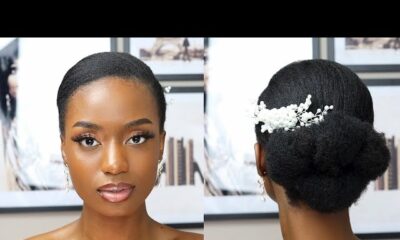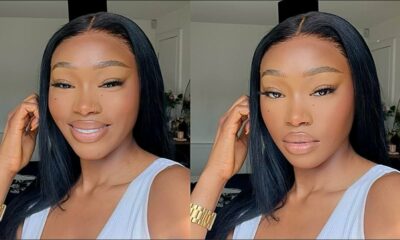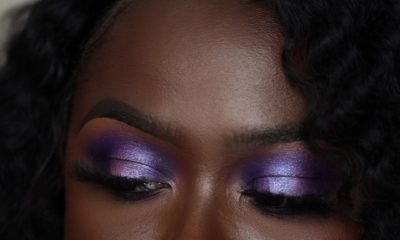Style
The Natural Hair Pop Quiz: Do Africans Have A Slower Hair Growth Rate?
Hello ladies!
So, last week we had a Natural Hair Pop Quiz where you answered a few questions on natural hair. And today, I am going to be answering those questions truthfully letting you know which ones are right or wrong; and hopefully letting you in on some natural hair truths along the way.
So here we go!
Question 1: African Natural Hair Texture grows Slowly than Other Afro-textured Hair Types
Answer: FALSE (Clap for yourself if you answered the question right)
Reason: African hair texture doesn’t necessarily grow at a slower rate since hair growth is a passive activity which is controlled and predetermined by our genes. As a fellow African living outside of Africa, I can tell you that Black women everywhere deal with the issue of growth and length retention, and so slow hair growth isn’t indigenous to African women only.
So, why can’t African women grow their hair as long as women living in the United States or in Jamaica? Let me answer this question by analyzing the growth and development stages of a typical African child as it relates to hair care and hair growth.
A Toddler
A parent that doesn’t know how to care for his/her own hair will most likely do the same ‘improper’ treatments on their child. Since the hair follicles etc of the child are still developing, it’s very crucial for mothers to be mindful of the hairstyles that they do on their children.
This is because hairstyles that are too tight and painful can rupture the child’s hair follicles which can lead to a permanent damage and hair loss.
School Age
By this age, the child will be considered mature enough to be able to handle relaxers, hair extensions, and pretty much any hairstyle that an adult will normally do.
The thing is, the individual hair follicles on the scalp can only hold so much extra weight, and since the child’s follicles are still developing it will be sensitive to manipulation and pulling. Heavy hairstyles that pulls on the scalp such as single braids can add extra tension on the scalp, which can lead to premature shedding and breakage. Unless the parent minimizes the use of extensions while maximizing deep conditioning treatments, the child’s hair will be stuck in a phase where hair growth = hair loss.
And so a child who grew up with bald edges, dryness and constant breakage will easily conclude that her hair will never grow past the 5 inches it’s always been for as long as she can remember.
Teenager
Now that the child can choose her own hairstyles, she will tend to choose hairstyles that she sees other teenagers do, regardless of how damaging it is on her hair. By now, she has learned to deal with the pain that comes with tight hairstyles and the discomfort that comes with carrying a few extra hundred grams of hair extensions that are pulling on her scalp.
If she relaxes her hair, she would have learned to deal with scalp burns and over-processing of the hair. After all, all her friends have thinning hair with bald edges. Besides, who cares how her hair looks anyway since she wears extensions 95% of the time.
Unless the teenager has a parent that will help her take care of her hair, she will be more likely to neglect her hair and instead, spend more time taking care of her hairstyle. Unfortunately when African hair is neglected, it will dry out and break off.
Adult
Now that the child has grown into an adult who is now working and earning an income, she can afford to do all sorts of hairstyles to her hair, change hairstyles as often as she wants and may be even hire her own personal hairstylist.
By this time, a typical African adult would have already developed a hair habit which might be difficult to break. And since her mind has already been set at this stage, it might be very difficult to reset her mind on the potential of her African hair.
Can you now see the reasons why Africans have a tough time growing their hair long? So how can we change this?
The truth is that this hair growth crises also relates to other Black women living abroad. The one thing I’ve noticed is that women living abroad have access to hair care specialists who can advice them on Black hair care practices that will help them to retain more length and maximize hair growth. This means that if you want to grow your hair long, you’ll have to put in the extra time and effort in “dealing” with your hair a few times in a week and try not to “forget” about your hair.
Simple hair habits such as cleansing, conditioning and gentle styling can truly put your hair growth on a trajectory.
If you happen to be a busy natural, I advise that you read the post which lists 3 simple steps that will help you manage your hair while maximizing growth. Click here for the post.
Do you have a minimal retention rate? What are you doing to increase the amount of hair that naturally grows out of your scalp? Share with us!
Photo Credit: Dreamstime/Atholpady

